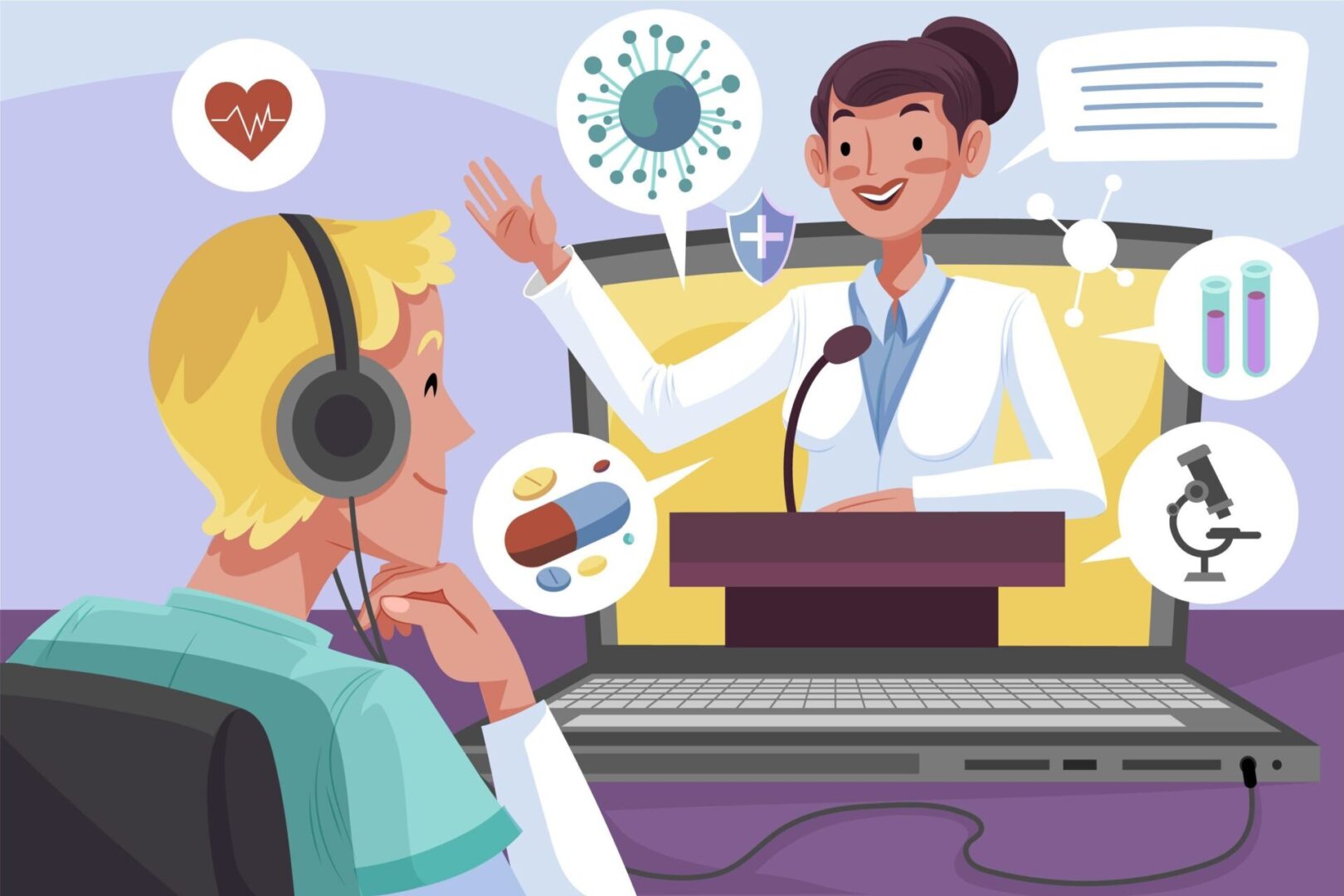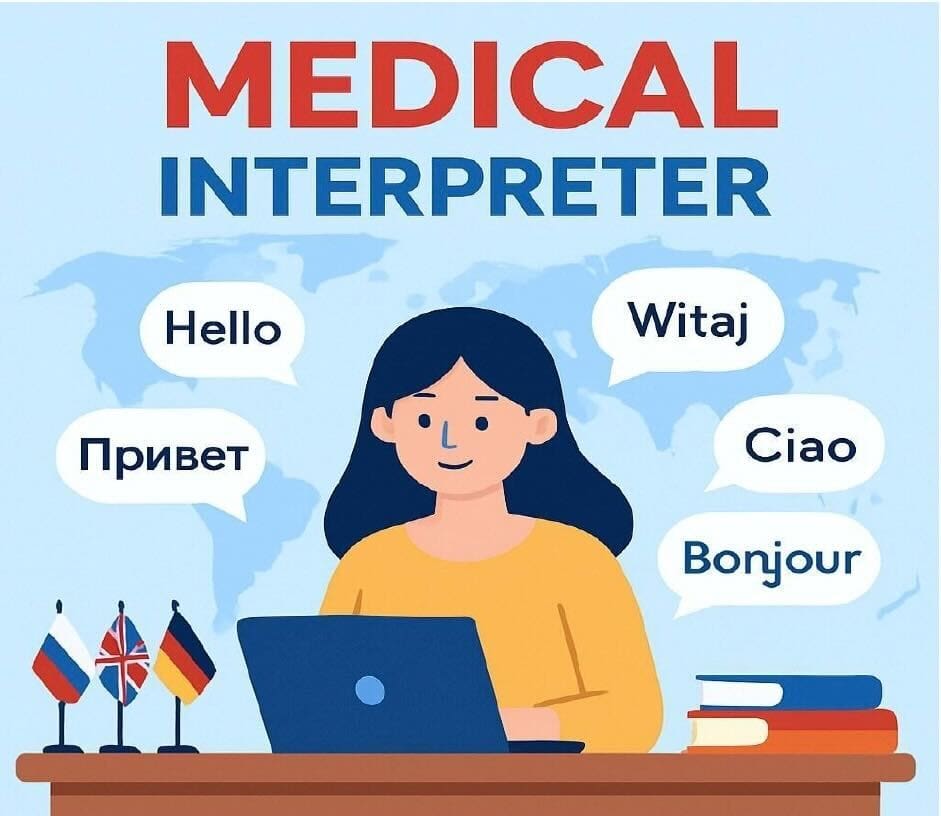Medical Interpreter: Why Every Hospital Needs a Qualified One

Language Barriers Can Be Life-Threatening in Healthcare
In a hospital, every second matters and every word counts. Miscommunication in a medical setting isn’t just inconvenient; it can be dangerous. For the millions of patients in the U.S. with limited English proficiency (LEP), understanding a diagnosis, consent form, or medication instruction may hinge entirely on the presence of a qualified medical interpreter.
At TransLangua we understand that bridging the language gap in healthcare settings isn't a luxury—it's a necessity.
The High Stakes of Medical Miscommunication
Hospitals and clinics across the country are increasingly multicultural, but that diversity comes with the challenge of ensuring clear, accurate communication. According to the U.S. Census Bureau, over 25 million Americans speak English “less than very well.”
Without access to a professional medical interpreter, these patients may:
- Misunderstand treatment plans
- Sign consent forms without full comprehension
- Receive incorrect medications or dosages
- Experience unnecessary anxiety or mistrust
Not only does this compromise patient care, but it also increases the risk of medical errors and legal liability for healthcare providers.
Why You Need Qualified Medical Interpreters—Not Just Bilingual Staff
While it may be tempting to rely on bilingual staff or family members, this practice is fraught with risk. A qualified medical interpreter is trained in medical terminology, cultural nuances, and ethical practices—ensuring accuracy, confidentiality, and compassion.
Benefits of Professional Medical Interpreters:
- Improved Patient Outcomes and Satisfaction
Professional medical interpreters ensure accurate communication between patients and healthcare providers, reducing misunderstandings about diagnoses, treatment plans, medications, and follow-up care. This leads to better clinical outcomes, higher patient satisfaction, and a more personalized healthcare experience.
- Reduced Readmission Rates and Medical Errors
Miscommunication is a leading cause of preventable hospital readmissions and medical errors. Trained medical interpreters help eliminate language barriers that often lead to incorrect medication use, missed instructions, or improper follow-up, ultimately reducing costly and dangerous readmissions.
- Compliance with Title VI of the Civil Rights Act and Joint Commission Standards
Hospitals are legally required to provide language assistance services to patients with limited English proficiency under Title VI of the Civil Rights Act. The Joint Commission also mandates effective communication as a key component of patient safety. Employing professional medical interpreters ensures compliance with these regulations and protects institutions from legal and accreditation risks.
- Enhanced Provider-Patient Trust
When patients can communicate clearly and feel understood in their own language, trust in their healthcare provider increases. Medical interpreters foster a respectful and empathetic environment, promoting openness, cooperation, and adherence to treatment, which are essential for effective care.

Ensure Language Access with TransLangua Today
When lives are on the line, communication can’t be left to chance. Investing in a qualified medical interpreter is one of the most impactful decisions a hospital can make to ensure safe, equitable, and high-quality care.
TransLangua is here to support you every step of the way.
FAQs About Medical Interpreters
What is a medical interpreter?
A medical interpreter is a trained professional who enables accurate and effective communication between patients with limited English proficiency (LEP) and healthcare providers. They interpret spoken or signed language in real time during medical appointments, hospital visits, procedures, and emergency care.
Medical interpreters are responsible for:
- Accurately translating medical terminology including symptoms, diagnoses, test results, treatment plans, and medication instructions.
- Facilitating informed consent by ensuring the patient fully understands risks, procedures, and alternatives.
- Conveying cultural context or nuances that may impact healthcare decisions or patient comfort.
- Maintaining confidentiality and impartiality, in compliance with HIPAA regulations and ethical standards.
- Promoting patient safety by reducing the risk of miscommunication that can lead to medical errors or noncompliance.
Unlike bilingual staff or family members, qualified medical interpreters are specifically trained in medical vocabulary, interpreter ethics, and cultural competency—making them essential to effective, equitable healthcare delivery.
Are hospitals legally required to provide interpreters?
Yes. Under federal law — including Title VI of the Civil Rights Act and Section 1557 of the Affordable Care Act — hospitals must provide qualified interpreters to patients with Limited English Proficiency (LEP) at no cost.
These laws prohibit discrimination based on national origin, which includes language barriers. In addition, The Joint Commission requires hospitals to ensure effective communication for safe, quality care.
Using trained interpreters isn't just good practice — it’s a legal requirement that protects both patients and providers.
What makes a medical interpreter “qualified”?
A qualified medical interpreter is more than just someone who speaks two languages fluently. They are trained professionals who possess the specialized skills, knowledge, and credentials needed to facilitate accurate and ethical communication in medical settings.
Key Qualifications
- Professional Training
Qualified interpreters receive formal training in medical terminology, anatomy, pharmacology, and common healthcare procedures. They are also trained in interpreting techniques, including consecutive and simultaneous interpretation. - Knowledge of Ethics and Confidentiality
They adhere to strict ethical standards, including those set by the National Council on Interpreting in Health Care (NCIHC), such as maintaining patient confidentiality, impartiality, and accuracy. They understand HIPAA regulations and how to navigate sensitive conversations with professionalism and discretion. - Certification
While not always required by law, national certification is a strong indicator of competence. Two recognized credentials include:
- CMI (Certified Medical Interpreter) – awarded by the National Board of Certification for Medical Interpreters
- CHI (Certified Healthcare Interpreter) – offered by the Certification Commission for Healthcare Interpreters (CCHI)
These certifications require passing written and oral exams that test both language proficiency and medical knowledge.
- Language Proficiency
Qualified interpreters demonstrate high proficiency in both English and the target language, often evaluated through standardized testing. Fluency alone is not sufficient — they must also understand dialects, idiomatic expressions, and culturally appropriate communication. - Experience in Healthcare Settings
Many qualified interpreters also have on-the-ground experience in hospitals, clinics, or emergency rooms, allowing them to work effectively under pressure and in emotionally charged situations.
